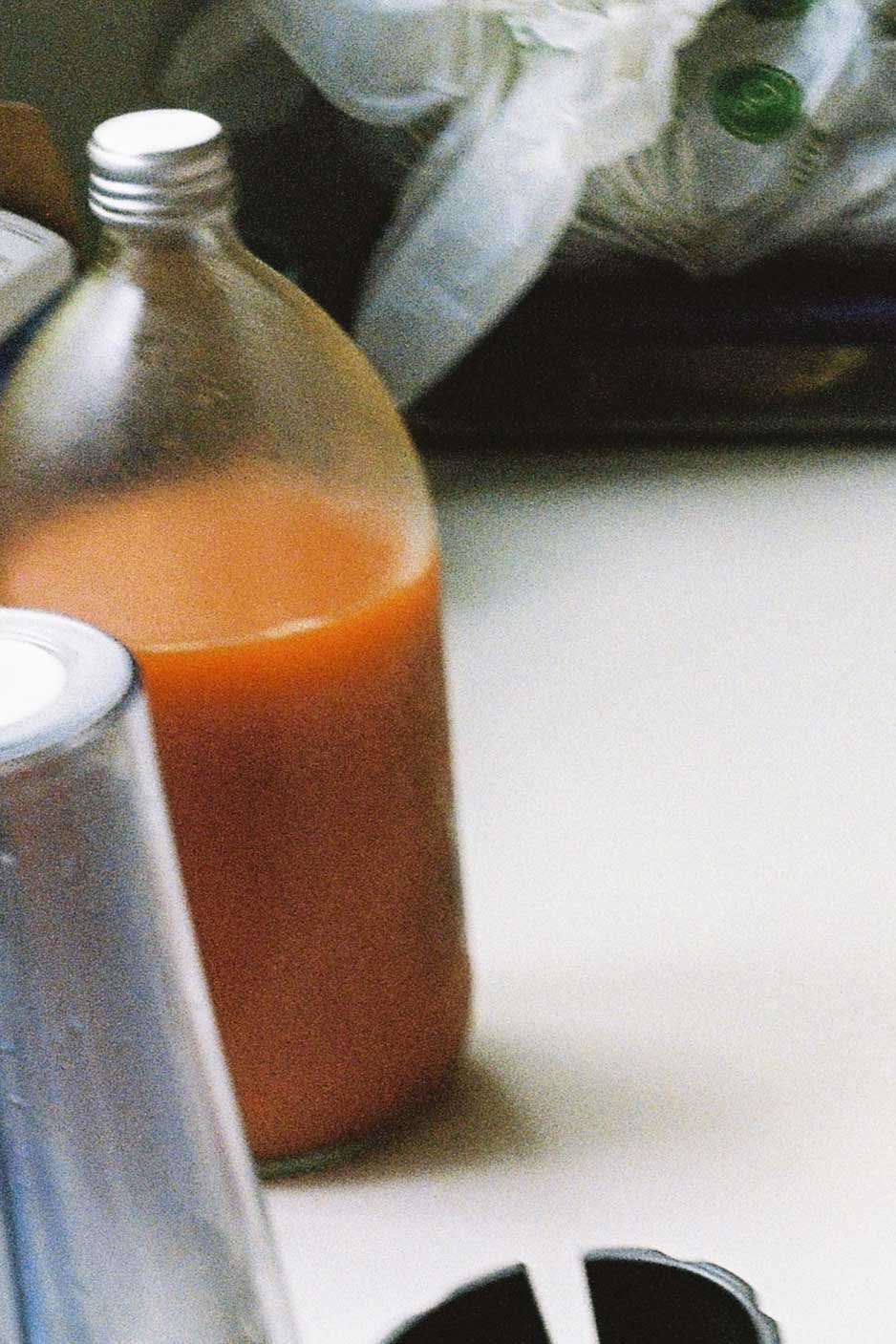An age-old health tonic, this goji concentrate has become a favourite means to replenish and infuse our body with vital nutrients. Drink it neat, or spike your smoothies and oatmeal. Prepare pink nut milk. And for those who don’t like bananas in your smoothies or if you like them extra thick, freeze your goji milk in an ice cube tray for a dose of clean fats and antioxidative properties. You can also make soft serve in your blender.
Regarded as a functional food, goji berries are abounding in Vitamin C, Vitamin A, Fibre and Iron. Its value lies in a high antioxidative capacity due to the presence of bioactive compounds, and it is an excellent source of macronutrients, including several amino acids. Studies also report the presence of riboflavin, thiamine, nicotinic acid, and minerals such as copper, manganese, magnesium, and selenium. What follows are the health benefits of goji berries substantiated by scientific research and literature. If you want to explore the benefits of goji berries further, I have included links to current scientific research and journals throughout.
Glowing skin. Lipid-soluble carotenoids occur at extremely high levels in goji berries, and given our skin contains carotenoids, it seems logical we include foods abundant in these molecules. Several studies have further established that individuals with high carotenoid concentrations in their skin appear more youthful given their age, whilst those with low carotenoid concentrations are less fortunate. One of the most common carotenoids found in goji berries is zeaxanthin. In ripening berries, the content of zeaxanthin can reach around 77.5% of total carotenoids, and so far, the best natural source of dipalmitin zeaxanthin is goji berries.
Vision protective. Beyond skin, the carotenoid content of goji berries has drawn attention due to its antioxidant properties on vision, retinopathy, and macular degeneration. While the subject requires further investigation, this study found that higher dietary intake of carotenoids was associated with a lower risk for age-related macular degeneration.
Goji berries are anti-inflammatory. With potent antioxidative benefits, goji berries, partly due to marketing and educational efforts, have been popularised as a superfood. Goji berries contain high amounts of Vitamins A and C and are inherently abundant in antioxidant phytochemicals. Intensive research confirms their high antioxidant potential and capacity to alleviate oxidative stress, the process that produces signs of ageing and inflammation—the root of all diseases.
Immunoprotective. There’s so much more to these antioxidant-rich and nutritionally dense berries that most people don't realise. Asia recognised these benefits long ago. Goji berry polysaccharides have traditionally been utilised in Chinese medicine to promote fertility and improve immunity. Goji berry polysaccharides are among the most valuable functional components, and studies confirm the immunomodulation effects of goji polysaccharides are capable of producing a strong impact on the adaptive, acquired and innate-immune systems, enriching and modulating the immune response.
Source of iron. Goji berries contain comparatively high levels of Iron, 1.9 mg per 28 grams or five tablespoons. This mineral helps form red blood cells, which transport life-giving oxygen throughout the body and produce hormones. There are two types of iron—heme iron which comes from animal-based foods, and non-heme iron, which comes from plants. And while heme iron is generally considered more bioavailable than non-heme iron, obtaining adequate iron levels on a vegan diet is achievable.





